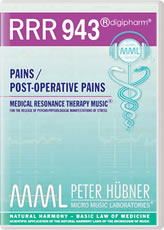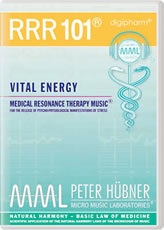Dear Mr. Tils,
As agreed on the telephone, we are sending you the report on 12-year-old Igor Soltschenko.
On 14th October 1994 the boy was admitted to the intensive care unit at the Children’s Surgical Center in Minsk following a traffic accident. He had an open skull and brain trauma, a basal skull fracture, a fracture of the right frontal bone, a fracture of the sacral joint, a fractured pelvis, a compound fracture of the central third of the right hip bone with displacement of the bone fragments.
| digipharm® |
| Home • Site Map • Research • Reports • International Experts • Music Preparations • Fundamentals • News • Questions • Shop |
| digipharm® |

Prof. Dr. med. Walentina Sidorenko
Digital Pharmaceutics – Harmonic Information:
Medication in the Intensive Care Unit
Report on the accident victim, Igor Soltschenko

His condition was exceptionally poor. He was unconscious and bone marrow fluid streamed from the ears and nose (liquaria). Unconsciousness lasted for 10 days followed by symptoms of encephalopathy (inadequate behavior, uncoordinated movements, hallucinations).
According to medical prognoses, chances of survival were minimal. This was also confirmed by the medical advisors. The prognoses for the retention of mental capabilities were also unfavorable.
Alongside the traditional treatment (sedatives, nootropil, B vitamins), Medical Resonance Therapy Music® was also used from the fourth day – approx. 4-5 hours during the day and night.
As the Senior Consultant on the intensive care station, Dr. med. Wladimir Wolkow, remarked, the application of Medical Resonance Therapy Music® subsequent to the traditional methods of treatment, played a decisive role in recovery: the Medical Resonance Therapy Music® reinitiated the vital functions which, despite conventional treatment, had continued to deteriorate.
On the 11th day the boy began to react satisfactorily to some of the things said by the medical personnel.
Adequate speech was recorded on the 14th day. Gradually the symptoms of encephalopathy declined. On 4th November Igor was operated upon (open osteosynthesis of the right hip bone) and on 7th November he was transferred to the trauma unit. At the end of December he left hospital a healthy boy, and is now able to go to school again.
In answer to the question: ‘What contributed to your recovery?’, the boy replied: ‘Beautiful music and outstanding doctors. I would like to hear this music every day.’
According to medical prognoses, chances of survival were minimal. This was also confirmed by the medical advisors. The prognoses for the retention of mental capabilities were also unfavorable.
Alongside the traditional treatment (sedatives, nootropil, B vitamins), Medical Resonance Therapy Music® was also used from the fourth day – approx. 4-5 hours during the day and night.
As the Senior Consultant on the intensive care station, Dr. med. Wladimir Wolkow, remarked, the application of Medical Resonance Therapy Music® subsequent to the traditional methods of treatment, played a decisive role in recovery: the Medical Resonance Therapy Music® reinitiated the vital functions which, despite conventional treatment, had continued to deteriorate.
On the 11th day the boy began to react satisfactorily to some of the things said by the medical personnel.
Adequate speech was recorded on the 14th day. Gradually the symptoms of encephalopathy declined. On 4th November Igor was operated upon (open osteosynthesis of the right hip bone) and on 7th November he was transferred to the trauma unit. At the end of December he left hospital a healthy boy, and is now able to go to school again.
In answer to the question: ‘What contributed to your recovery?’, the boy replied: ‘Beautiful music and outstanding doctors. I would like to hear this music every day.’

Prof. Dr. med. W. Sidorenko (center)
and her colleagues talking to
German colleagues
at the Friedensburg Hospital
and her colleagues talking to
German colleagues
at the Friedensburg Hospital
Medical Resonance Therapy Music® is currently used in the intensive station in the treatment of patients who are unconscious, patients in a narcotic slumber following surgery and children suffering serious skull-brain traumas.
In order to be able to extend the application of this method, the intensive care unit needs further therapy equipment.
Yours sincerely,

Walentina Sidorenko
In order to be able to extend the application of this method, the intensive care unit needs further therapy equipment.
Yours sincerely,

Walentina Sidorenko
| MEDICAL RESONANCE THERAPY MUSIC® Medical Music Preparations on CD |
|||
|
With kind permission of AAR EDITION INTERNATIONAL
© 1998- DIGIPHARM >
© 1998- DIGIPHARM >

